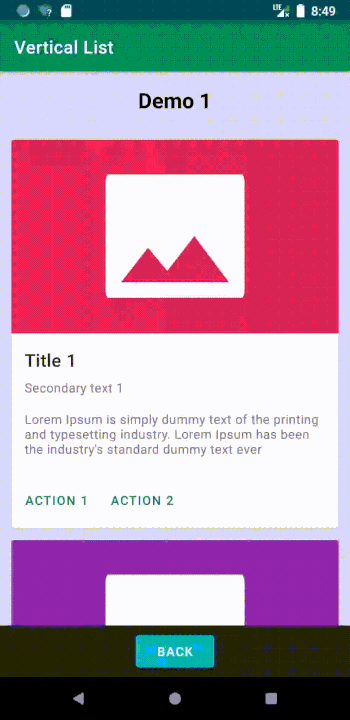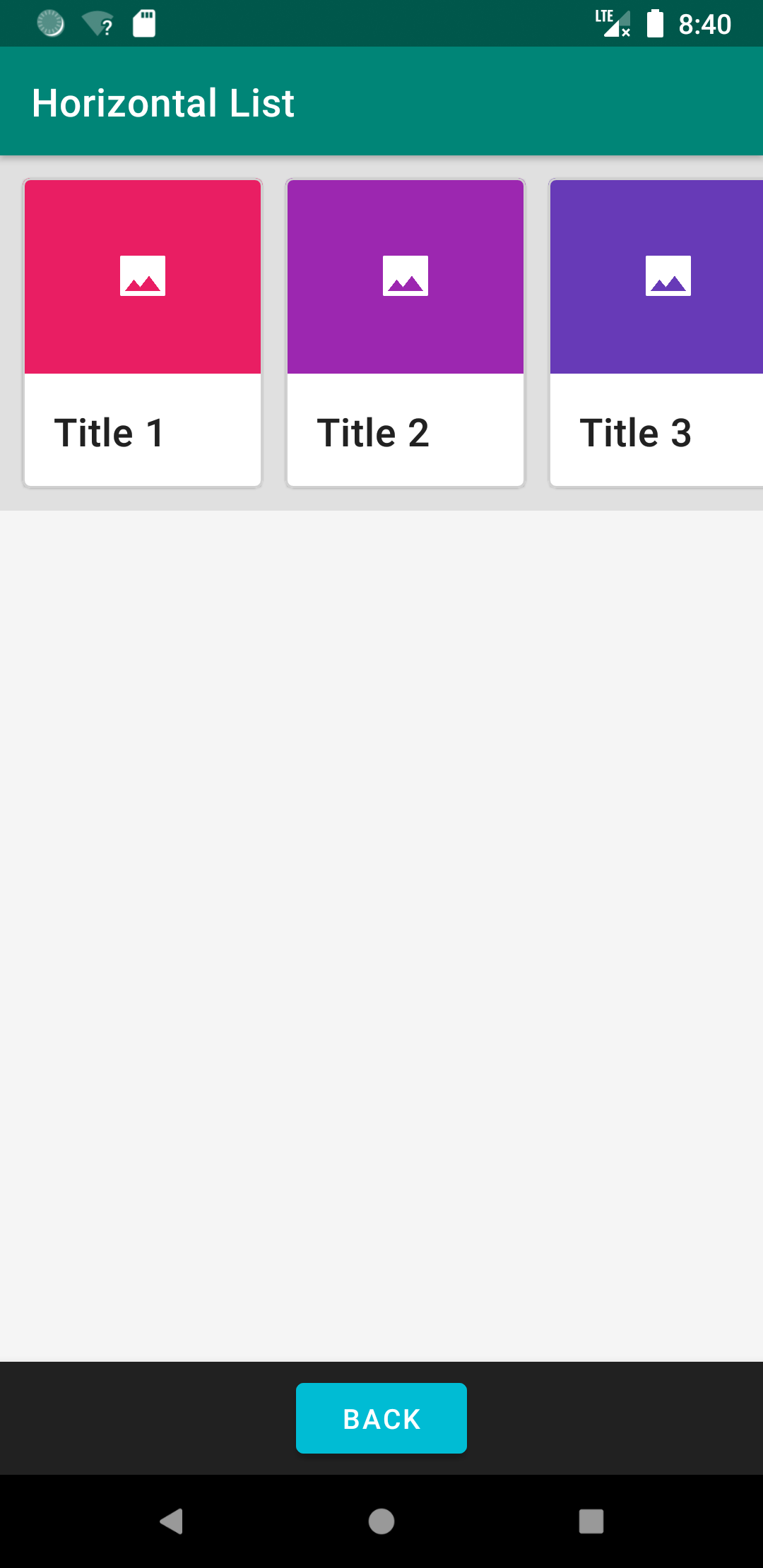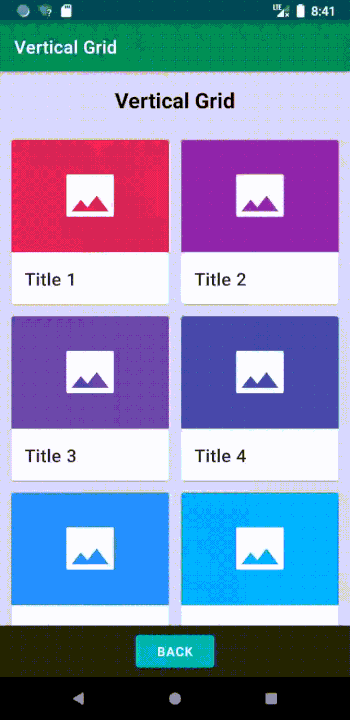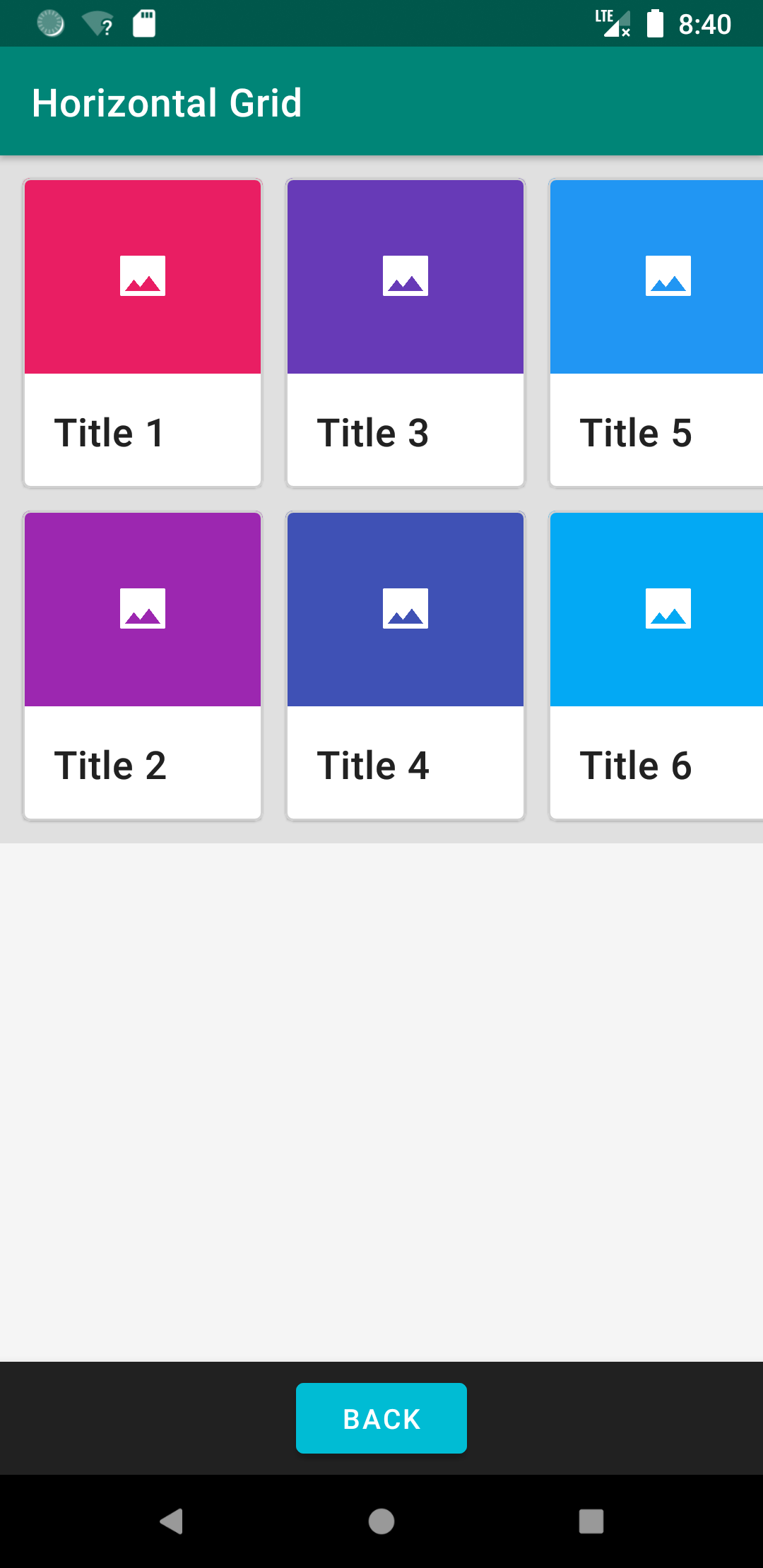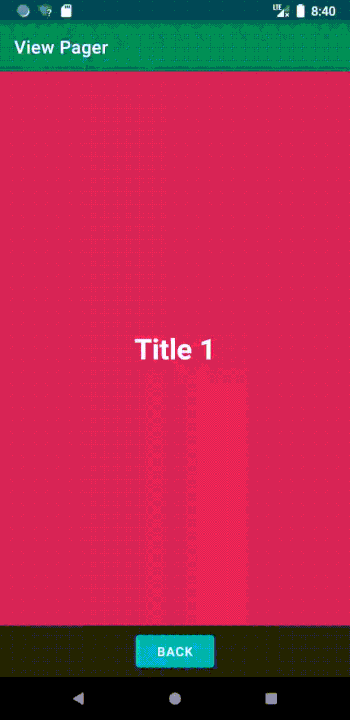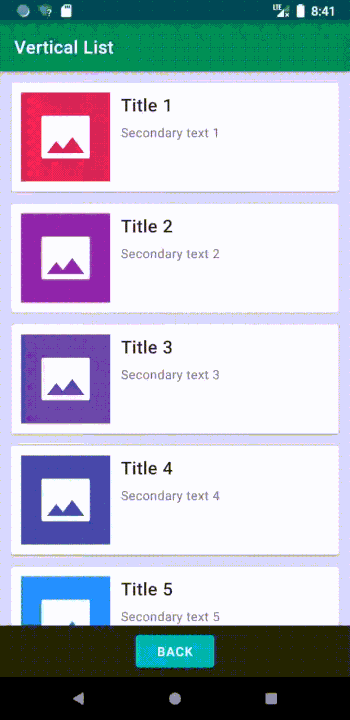simple recyclerview setup for android with kotlin dsl
- simple vertical/horizontal list/grid
- with header and footer
- item with swipe menu
- no need for create multiple classes for adapter or viewholder
- simply use different snaps
add the following lines to your app module build.gradle
repositories {
maven { url 'https://jitpack.io' }
}dependencies {
implementation 'com.github.codegamez:simple-list:1.0.2'
}For see a demo you can clone this project, build and run it
recyclerView.simple(items) { // call this function on your recycle view and put your dataset
columns = 1 // a list with one column and many rows
itemMargin(8) // margin for every items (dp)
padding(8) // padding of recyclerView (dp)
clipToPadding = false
// set a header on top of list view that will scroll with other items
headerBind(R.layout.header_view) {
// bind header view with dataset
// will run iside onBindViewHolder of header
}
// set a item layout and bind your dataset with it
itemHolder(R.layout.item_view_v) {
// will run inside item viewholder
itemView.button.setOnClickListener {
// on click
}
bind { view, item, position ->
// bind item view with dataset
// will run inside onBindViewHolder of item
}
}
// set a footer at bottom of list view that will scroll with other items
footerBind(R.layout.footer_view) { v ->
// bind footer view with dataset
// will run iside onBindViewHolder of footer
}
}recyclerView.simple(items) {
rows = 1 // a list with one row and many columns
itemMargin(8)
padding(8)
clipToPadding = false
itemHolder(R.layout.item_view_g) {
itemView.updateLayoutParams {
width = 170 * density
}
itemView.setOnClickListener {
// on click
}
bind { v, item, _ ->
// bind item view
}
}
}recyclerView.simple(items) {
columns = 2 // a grid with 2 columns and many rows
// or
rows = 2 // a grid with 2 rows and many columns
itemMargin(8)
padding(8)
clipToPadding = false
headerBind(R.layout.header_view) {
// bind header view
}
itemHolder(R.layout.item_view_g) {
bind { v, item, _ ->
// bind item view
}
}
}recyclerView.simple(items) {
rows = 1
enablePagerSnap = true // list will act like a view pager
itemBind(R.layout.item_view_p) { v, item, _ ->
// bind item view
}
}recyclerView.simple(items) {
columns = 1
itemMargin(8)
padding(8)
clipToPadding = false
clipChildren = false
itemHolder(R.layout.item_view_h, R.layout.menu_view_h) { // first input is item layout and second one is swipe menu layout
bind { v, item, _ ->
// bind item view
}
swipeView?.also { v ->
v.btnDelete.setOnClickListener {
adapter.removeItem(adapterPosition)
}
v.btnMessage.setOnClickListener {
// on click
}
}
}
}RecyclerView.sample(items) {}
start point of all functionality of this library. items can be List, MutableList, Array and ArrayList.
all other methods or variables must be inside this function
rows
set number of rows of list. one of rows or columns will be used.
columns
set number of columns of list. one of rows or columns will be used.
headerBind(layoutId) { view, item, position -> }
itemBind(layoutId) { view, item, position -> }
footerBind(layoutId) { view, item, position -> }
headerBind is for binding header view.
itemBind is for binding item view.
footerBind is for binding footer view.
inputs: view is layoutId created view. item is from items and position is position of view inside recycleView.
position is not always equal to item position. if list has header, position will be one more than item position
adapter
is adapter of the recyclerview
adapter.getItemPosition(position)
convert adapter position to item position
adapter.getItem(position)
receive adapterPosition and return item from dataset that is in itemPosition
adapter.removeItem(position)
receive adapterPosition and delete item from dataset that is in itemPosition and update adapter
adapter.removeItemRange(positionStart, itemCount)
remove range of items and update adapter
adapter.addItemRange(positionStart, items)
add range of items and update adapter
adapter.addItemRange(items)
add range of items to end of the list and update adapter
adapter.addItem(position, item)
add item to position of the list and update adapter
adapter.addItem(item)
add item to end of the list and update adapter
adapter.setItem(item)
set item to position of the list and update adapter
adapter.swipeItem(position1, position2)
replace items in two positions and update adapter
headerHolder(layoutId) {}
headerHolder is header viewHolder.
you can bind inside header holder with bind() { view, item, position -> }.
this is equivalent of headerBind.
itemHolder(itemLayoutId, swipeLayoutId) {}
itemHolder is item viewHolder.
you can bind inside item holder with bind() { view, item, position -> } this is equivalent of itemBind.
you can bind swipe menu with swipeBind() { view, item, position -> }.
item : item from dataset
rootView : root view of item that contains itemView and swipeView. if swipeLayoutId be null then itemView will be equal to rootView
itemView : created view of itemLayourId
swipeView : created view of swipeLayoutId
footerHolder(layoutId) {}
footerHolder is footer viewHolder.
you cand bind inside footer holder with bind() { view, item, position -> }. this is equivalent of footerBind.
clipToPadding : equivalent of recyclerView.clipToPadding
clipChildren : equivalent of recyclerView.clipChildren
itemMargin(space) : top and bottom and left and right margin of every item (dp)
itemHorizontalMargin(space) : left and right margin of every item (dp)
itemVerticalMargin(space) : top and bottom margin of every item (dp)
enablePagerSnap = true : list will be act like viewPager
enableLinearSnap = true : linear snap
enableGravitySnap = Gravity.CENTER : set gravity for items to snap (GravitySnapHelper)
swipeMode : SWIPE_MODE_NORMAL | SWIPE_MODE_SAME_LEVEL (SwipeRevealLayout)
swipeDragEdge : SWIPE_DRAG_EDGE_BOTTOM | SWIPE_DRAG_EDGE_LEFT | SWIPE_DRAG_EDGE_RIGHT | SWIPE_DRAG_EDGE_BOTTOM (SwipeRevealLayout)
-
GravitySnapHelper | A SnapHelper that snaps a RecyclerView to an edge.
-
SwipeRevealLayout | A layout that you can swipe/slide to show another layout.
